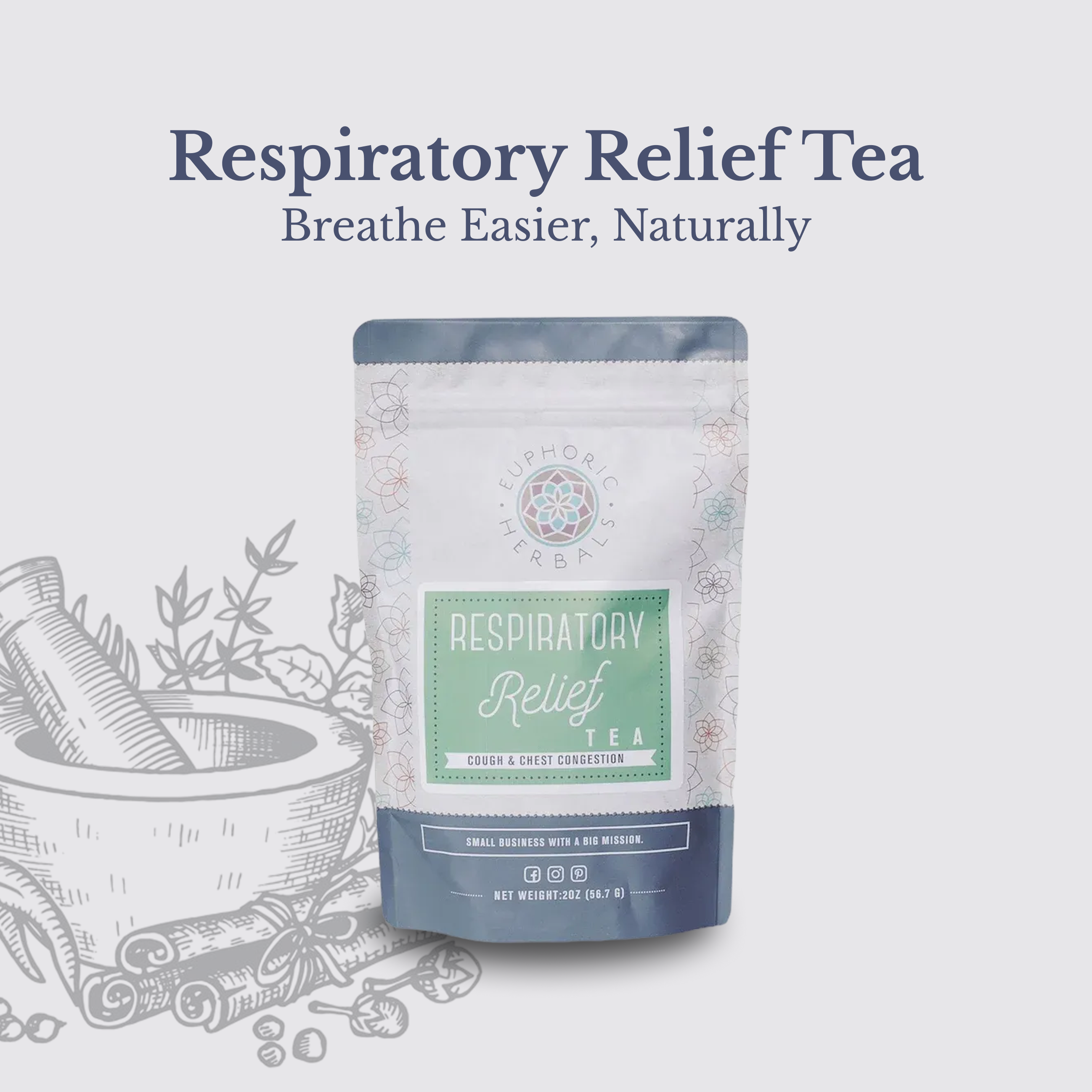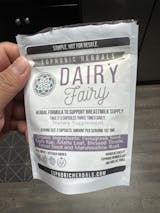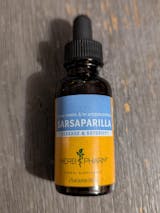What are Natural Remedies to Quit Smoking?
Smoking cigarettes is an addictive habit that many people want to quit. In fact, surveys frequently find that at least 68% of adult smokers would like to stop smoking. (1)
If you fall into this category, you're probably already well aware of the dangers of smoking (including an average chance of dying 10 years sooner than non-smokers). But the hard part is: How do you actually do it? (2)
While the approach to smoking cessation is different for every person, herbs and other natural remedies can play a hugely supportive role in the process, especially if you don't want to go the route of prescription medication.
Some herbs help to calm and support your nervous system and others are natural mood lifters. Both types can help with withdrawal symptoms and resisting cravings. Other remedies help your body recover from the effects of smoking, especially by restoring depleted nutrients and giving respiratory support.
Here's a look at the top herbs and natural remedies that have helped people stop smoking for many years.
What Herbs Help to Quit Smoking?
Lobelia

Lobelia is a lovely blue flower that has also been used as an herbal remedy for centuries, particularly for respiratory ailments. It's also one of the most powerful herbs for quitting smoking because it may help control cravings.q
The main active compound in lobelia, lobeline, is believed to have an effect similar to nicotine in the body but without any addictive properties. It may also help to relax the airways and support lung function. (3)
Note: Lobelia can have significant adverse side effects if you take too much of it. If possible, consult with an expert before using it to find out exactly how much to take. You can also use it within a remedy like this Smoker's Replacement extract.
Licorice Root
Licorice root is a demulcent herb that can soothe the tissues in your respiratory tract and digestion. It may help with the irritation left behind by frequent smoking and can also calm stress, which will help with withdrawal.
In addition, licorice extract is often added to tobacco products, including cigarettes, to enhance the flavor. Including it in an herbal blend you use to quit smoking could help you transition, since your mind will recognize the flavor. (4)
Green Tea
Green tea is one of the healthiest beverages you can drink, and some research indicates that it could help combat the urge to smoke. Drinking it at least twice a day has also been shown to help reduce your chance of developing chronic obstructive pulmonary disease (COPD), something smokers are at high risk for. (5)(6)
Green tea is also very rich in antioxidants that replenish your body after long-term smoking and help you to detox and get rid of accumulated toxins. As a bonus, green tea has a mood-lifting effect that may help with withdrawal.
Ginseng
Ginseng is a popular herb for those who are trying to quit smoking because it increases energy, reduces stress, and helps your body to get back in balance. It does this as an adaptogenic herb that helps to "normalize" your body and mind. (7)
Ginseng is also full of antioxidants that help reduce chronic inflammation (which can come from smoking) and support detox.
Milky Oats & Oatstraw

Milky oats and oatstraw are two parts of the oat plant used as herbs for humans rather than food. Both are powerful tonics for your nervous system and help to calm stress, irritability, and anxiety.
Because they calm stress, oatstraw and milky oats can also help you fall asleep and sleep better, something that can be difficult when you're trying to stop a smoking habit. Both will also help to restore minerals that may be depleted.
Catnip
Catnip is another calming herb (for humans, that is) that may help to ease withdrawal symptoms by lowering stress and promoting relaxation and sleep. It can also help to soothe coughs and other types of respiratory distress. (8)
You can use catnip as either a tincture or a tea. If you find yourself having sleep difficulties while tying to quite smoking, try catnip in this Sweet Slumber Tea blend.
St. John's Wort
St. John's wort is most well-known as an herb for easing depression and supporting mental health. Though results have been mixed, studies also show that St. John's wort can be helpful for alleviating tobacco withdrawal symptoms and may help reduce cravings. (9)
However, it's important to note that St. John's wort takes time to work in your body. The best results are usually seen at least 2-3 weeks and sometimes longer after consistent use. Because of this, you may want to start taking it even before you stop smoking.
Also, be aware that St. John's wort can interfere with antidepressants and other medication.
Valerian
Valerian is a powerful sleep aid that has a sedative-like effect when used in large enough quantities. In smaller amounts, valerian is very effective for calming stress and anxiety and has been used as a nerve tonic for hundreds of years.
If you are experiencing a lot of restlessness, irritability, or sleeplessness while quitting smoking, this herb is a top choice for calming your body and mind.
What Natural Remedies Help to Quit Smoking?
Acupuncture
Moving away from herbs for a minute, acupuncture is an ancient therapy that has been used quite successfully to aid smoking cessation. It uses tiny needles inserted into the body by an acupuncture expert at specific points.
Research has shown that receiving acupuncture increases the success rate at which people quit smoking. There are also acupuncture points in the ears that a trained acupuncturist can help you find and activate at home when you get a craving. (10)
Black Pepper Oil

Black pepper is an antioxidant-rich spice that can help lower inflammation and supports digestion. The essential oil is a natural mood booster and has shown benefits for mental health.
Studies have also found that black pepper essential oil can help with both withdrawal symptoms and nicotine cravings simply by being inhaled as aromatherapy. Just putting a drop on a tissue and sniffing it whenever you get a craving may help. (11)(12)
Vitamins B & C
Research has indicated that smokers tend to have lower levels of vitamin C and certain B vitamins (particularly folate), possibly due to the effects smoking has on the body. (13)
Adding extra vitamin C to your diet along with B complex or folate won't necessarily help you stop smoking, but it may help your body recover from the effects. Vitamin C, especially, is a powerful antioxidant that may help protect your lungs. (14)
Hyssop
Hyssop is more of a recovery herb for your lungs than it is an herb that will help with cravings or withdrawal (although it may offer some nervous system/stress support).
Hyssop has been used for literally thousands of years to ease coughing, relieve congestion, and help relax the airways. It's very soothing for the tissues of your respiratory tract and has the bonus of helping your body to cleanse itself of toxins.
Mullein
Mullein is one of the most supportive herbs you can use for your respiratory system and may help your lungs to recover after you quit smoking. It soothes mucous membranes in the throat, mouth, and respiratory tract.
Mullein can also help with coughing and congestion and has frequently been used for inflamed and irritated lung tissues. It even supports your lymphatic system, which is key for detoxification.
Smokable Herbs

While no type of smoking is good for your lungs, herbs can be used as a tobacco-free smoking blend if you need something to help yourself ease off of the habit.
Some smokers will add tobacco to the mix and gradually decrease it until only herbs remain. Others find it more helpful to quit "cold turkey" and use herbal smoking blends to ease stress and anxiety.
Here's more about the best smokable herbs if you're interested.
Precautions
Be sure to research each herb before using it and understand that each one can have negative effects if used in the wrong way. Some are contraindicated during pregnancy and others may interact with medication, so always know what you are getting into before you start using an herb!
Can you Quit Smoking Naturally?
There are plenty of herbs and a few other natural remedies that can really make a difference if you are trying to quit smoking. If you aren't sure where to start, you may want to try a combination support like this Smokers Replacement extract.
Also, don't underestimate the power of a support system and lifestyle changes to help yourself as well, and don't give up!
Disclaimer: This post is for informational purposes only. It does not constitute medical advice and should not be substituted for medical advice. Please consult your health care provider, herbalist, midwife, or naturopathic physician before taking herbs, supplements, etc. Here's the link to our full disclaimer.




























































































































































































